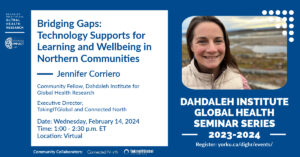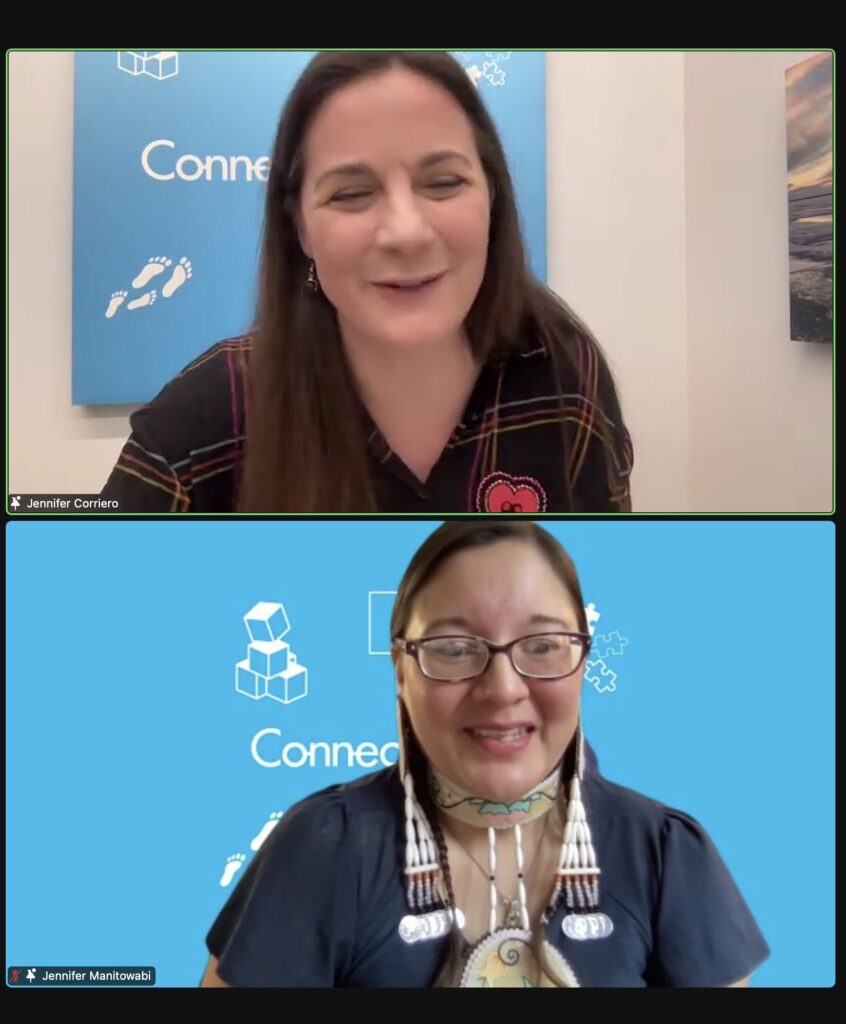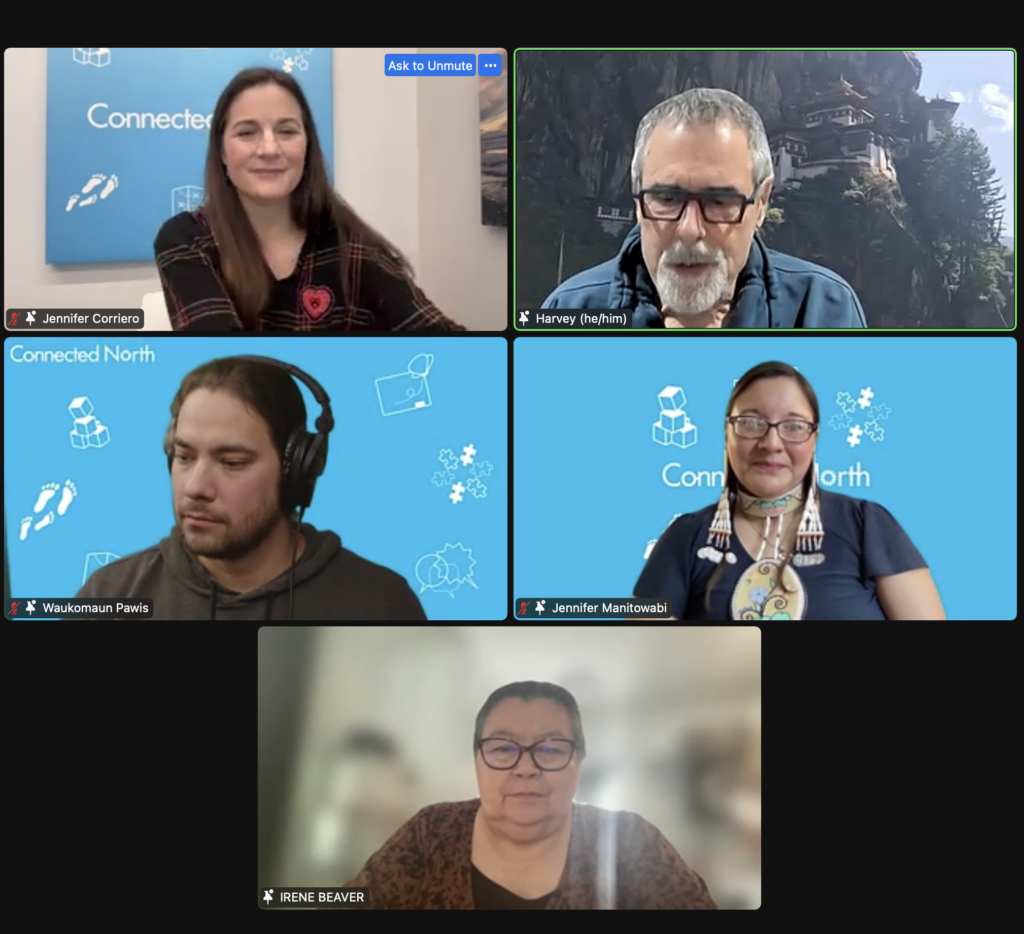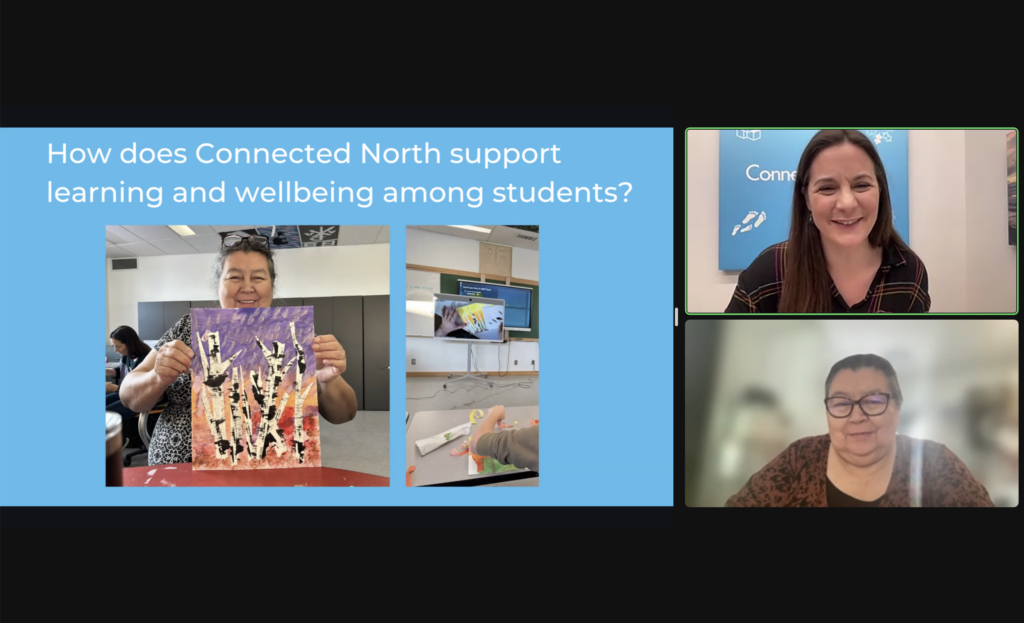Post
Published on April 19, 2024

In the third and final installment of the Climate Change and Mental Health ‘Listening to the Canadian North’, the Wellness Impact Lab welcomed Dahdaleh community fellow Jennifer Corriero and her colleagues Waukomaun Pawis, Elder Eileen Beaver, Jennifer Manitowabi. Together they discussed how technology is used to promote virtual learning and wellbeing across Canada, especially in remote, Northern communities.
Corriero, co-founder of the charity TakingITGlobal, began the session with an introduction to the objectives of Connected North, a program established in 2013 which her charity has been operating for the past eight years. During that time, Corriero helped expand the use of tele-conferencing technology which made it possible to reach students from kindergarten up to grade 12 living in remote, Northern Indigenous communities. In the 2022-2023 school year alone, they delivered over 6,560 sessions to more than 160 schools.
Next, Pawis introduced the ode'we’igan, an instrument that translates to drum in Anishinaabe Ojibwe with the first part of the word, ode’, meaning heart. Pawis drew connections between the sound of the drum and a heartbeat. He delivered a beautiful song and drum performance that is usually performed at social gatherings with the round dance. As an education coordinator and role model, he wants to connect younger generations with role models and content that they can relate to.
Beaver described how people build connections to each other and to the world. From work with the Connected North, she witnessed young students communicate their unique culture and experiences with their peers and guest speakers. Beaver’s work with the Connected North fosters enlightenment, it offers teaching and new perspectives from people outside their communities. Additionally, Beaver imparts with the audience the importance of speaking from the heart and spirit which can then guide the mind.
Lastly, Manitowabi spoke about her experiences living in the city and pursuing academia as an Indigenous person. As a PhD student, she noticed the gaps in academia when discussing Indigenous peoples. For example, she realized there is a lot of research being done on virtual learning but very little that looks at virtual learning in an elementary level for First Nations students. She underscores the importance of inviting Indigenous knowledge keepers to share their voices in classrooms and academic spaces.
In the last part of the seminar, Corriero reflects on the profound impact of the Connected North in classrooms across Canada. The success of their programs can be illustrated by their high satisfaction ratings by teachers and students alike. Furthermore, Connected North’s sessions not only generate new insights, but they also amplify diverse voices from beyond the classroom, thereby fostering hope and wellbeing for the future.
Watch the full seminar:
Connect with Jennifer Corriero
Learn more about Connected North
Themes | Planetary Health |
Status | Active |
Related Work | |
Updates |
N/A
|
People |
You may also be interested in...
Research recap – Modelling Health Impacts of Climate Change Workshop in Malawi (August 2022)
This was our first in-person and onsite meeting of all PIʼs, fellows, and graduate students since the onset of the global COVID pandemic. From August 15 until August 25, we engaged in stakeholder consultations, partnership ...Read more about this Post
Exploring Planetary Health and Global Foresighting Through Immersive Media: Highlights from Three Landmark Events
Pravin Pillay, Creative Director of MOVE37XR and Community Fellow at York University’s Dahdaleh Institute for Global Health Research, has recently taken the stage at three influential events to share his vision of how immersive media ...Read more about this Post
Planetary Health Film Lab Reports from COP28 and Belize
Last month, Dahdaleh research fellow Mark Terry attended the UN climate summit, also known at COP28. Mark shared updates about the Planetary Health Film Lab (PHFL) and participated meaningfully in discussions about neurodivergent representation. On ...Read more about this Post



